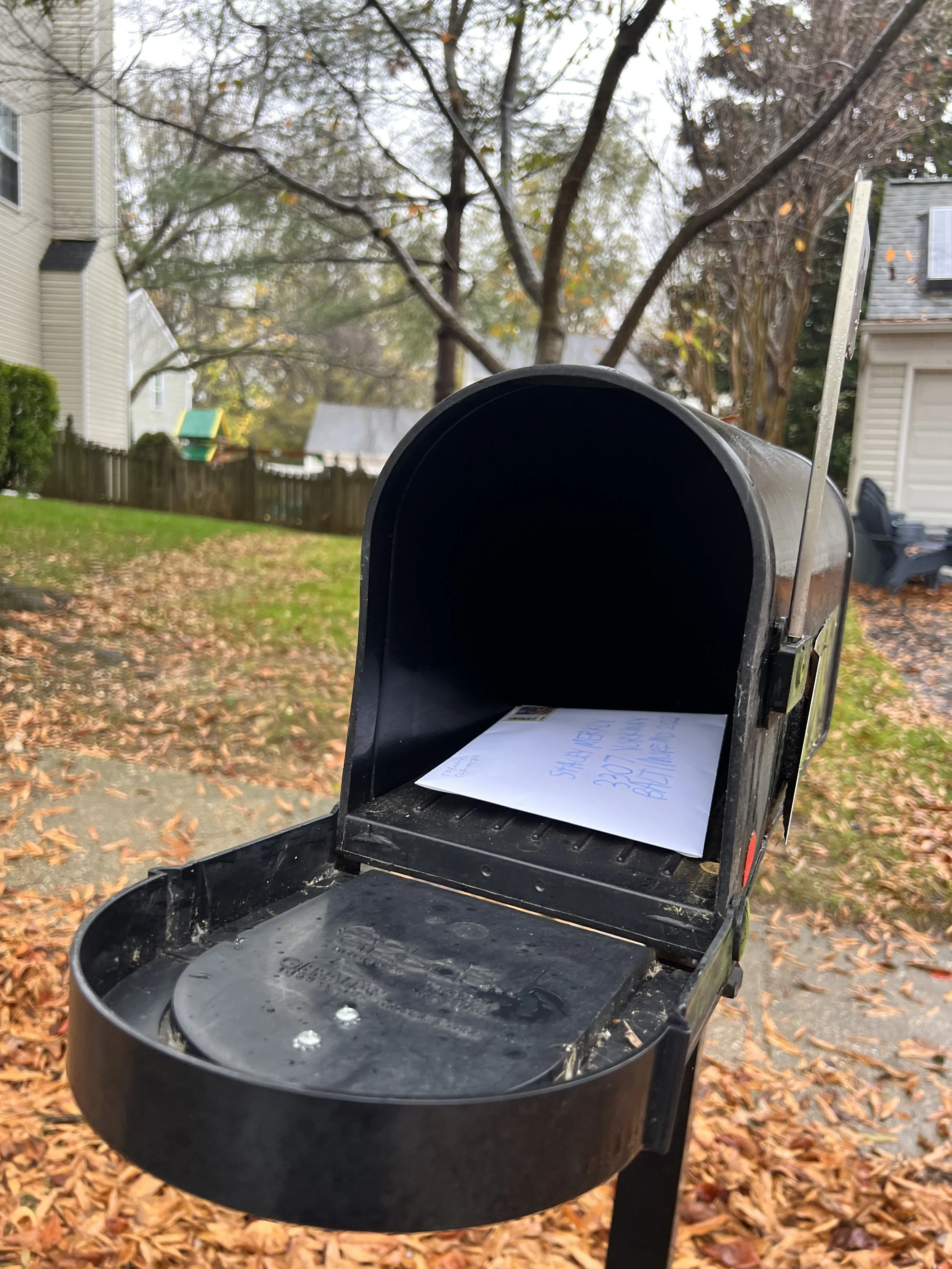Life Skills Matter
This picture represents a lot of life skills. The envelope in the mailbox contains the third in a series of hand-drawn cards Leah created and insisted on mailing. One was for a milestone birthday, another a ‘just because’ greeting for her grandmother, and the third was a get well message for one of her support staff, who was injured on the job at Leah’s old school.
Because you’re reading this here, you probably already know this isn’t a cute story about the lost art of snail mail. This is a victory lap. When you’ve parented someone who takes years to master skills that her neurotypical siblings and peers develop organically, you take those laps whenever you can.
Why it’s a win
Because Leah almost didn’t need me. She would not have involved me at all if she’d known where we keep the stamps. Without help, she accessed relationship skills to identify the need; without help, she made creative decisions about how to meet the need; and without help, she accessed functional skills to mail her creations.
The victory I’m claiming is not mine, by the way. While I like to think our family models caring for others, the practical, functional skills Leah accessed to mail her cards were almost all taught during her last few years of school. It’s another example I can point to when other parents ask my opinion on when, where, and how these skills should be taught.
My answer: As early, as often, and in as many settings as possible. Definitely including school. That’s the part of my answer that gives some parents the vapors.
When I talk about functional skills, as they’re often called in IEPs and other official documents – I’m talking about skills that don’t appear in state education standards. Mastering them doesn’t help kids earn high school diplomas. And that’s why a chunk of the parents I met on Leah’s journey through school, whose visions for their kids’ education and future were as varied as the children themselves, actively opposed using instructional time to teach anything that wasn’t diploma-driven. The term ‘functional’ was an f-bomb they didn’t want dropped anywhere near their children. For them, it signaled ‘giving up’ or conceding that their children were ‘less than’ their peers.
Of course they aren’t. But I also don’t think I gave up on Leah when I faced a couple of important facts: She doesn’t learn at the same rate as others her age, and school eligibility comes with an end date. Making sure she is able to read to perform a task is far more valuable to the rest of her life than making sure she reads The Great Gatsby. The ultimate goal is a happy, healthy life. My job is to figure out what that looks like for her, and how to get there.
Given that, it felt foolish and short-sighted not to allow a group of highly trained teachers to help prepare Leah to function in the world. Leah has expressed zero regrets about her lack of math classes since she left school for good. But she has let me know that she misses some of the people there. It’s those functional lessons on writing and mailing letters that have helped Leah to access another f-word: Friendship. And that’s one thing every parent I’ve met on this journey wants more of for their neurodivergent children.
